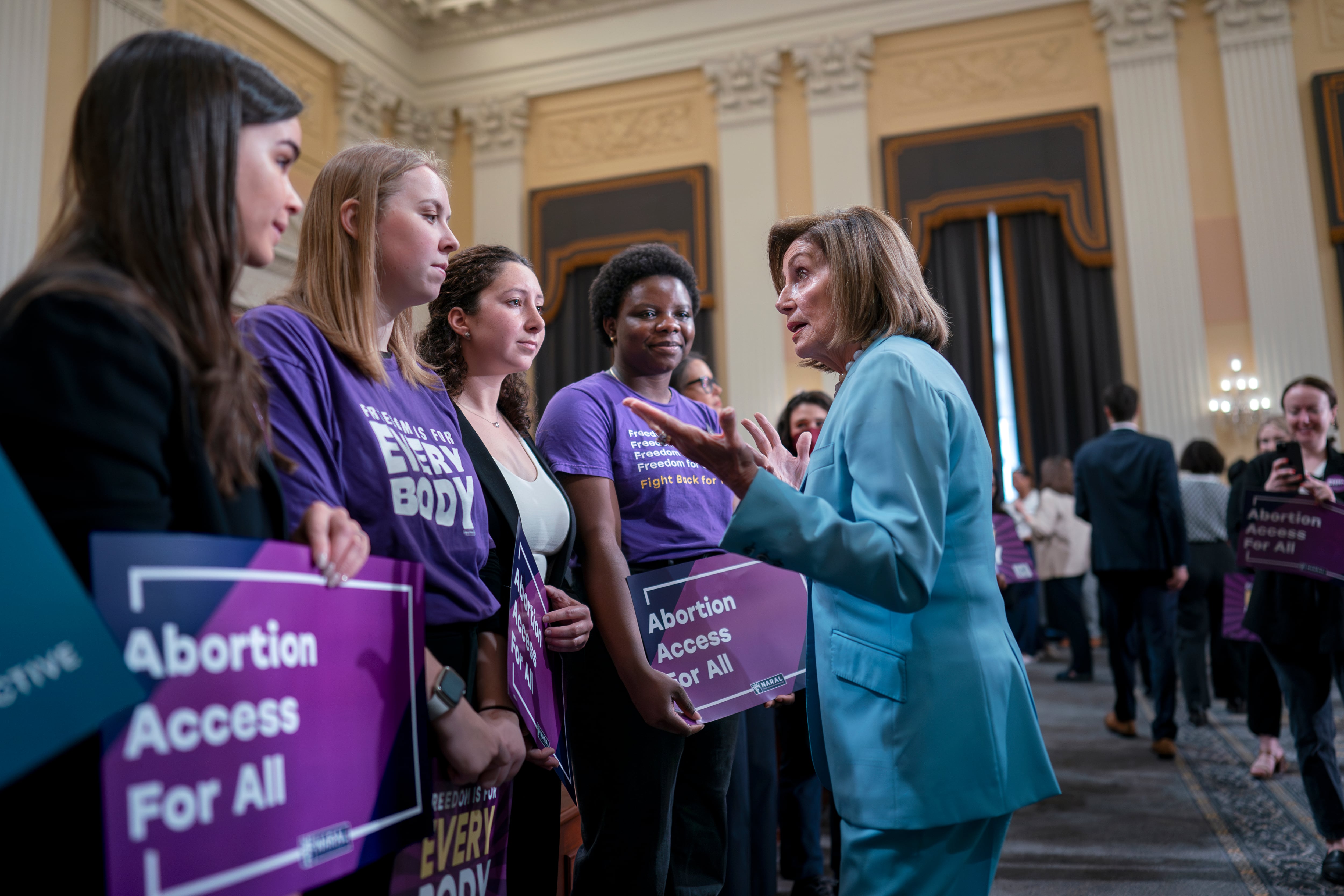An advocacy group representing 1,300 employees at the U.S. Department of Justice said the Biden administration has failed to protect abortion rights for members of the civil service who may seek it through government-sponsored health plans, according to a letter obtained by Federal Times.
The group, DOJ Gender Equality Network, has urged multiple changes since the Supreme Court overturned Roe v. Wade last year, including covering travel expenses for employees seeking abortion care, as the Pentagon has moved to do, and ensuring background checks do not penalize those who have undergone the procedure.
DOJ GEN penned the letter on Thursday to the Office of Personnel Management, the Office of Management and Budget and the President and vice president’s offices, saying these recommendations have been met with silence. This comes as the Biden administration issued an executive order on Friday requiring federal employees, veterans and service members have affordable access to contraception as part of a broader commitment to preserving reproductive health care.
“DOJ GEN is frustrated that the Administration has failed to protect federal civilian employees’ access to abortion since Roe v. Wade was overturned,” said Jen Swedish, DOJ GEN board member and a leader of its Abortion Access Working Group, in a statement. “Over the past year, many private companies and the Department of Defense have stepped up to help their employees weather this healthcare crisis, but federal civil servants have been left behind.”
There has been a broader push by employees and health groups to expand care for reproductive health care issues — not just abortion. For years, infertility benefits have been limited under the Federal Employee Health Benefits program, and employees have said that has pushed them to consider employment elsewhere.
RELATED

“The federal government’s ability to recruit and retain talented employees will suffer if it does not offer assistance to the civil servants who live in states where abortion access is unavailable, a reality that DoD recognizes,” the letter says.
DOJ GEN proposes three consecutive days of administrative leave for employees who must travel for abortion care and ensure that there is a standing bank of leave should an employee need it.
OPM’s policy says that an agency must allow an employee to take sick leave that may involve traveling long distances and that advanced leave can be granted if not enough is accrued. That guidance is not specific to abortions; it covers all medical needs.
DOJ GEN also says that because the Justice Department’s legal counsel has already determined that the Department of Defense can pay for abortion-related travel for service members and dependents without violating statutory restrictions, so, too, should civilian agencies.
However, that provision for the military has not gone unchallenged; Sen. Tommy Tuberville, R-Ala., has said he will not allow pending military nominations to go through so long as the abortion policy remains in place, Military Times reported. Other critics say that policy flies in the face of longstanding laws that restrict any use of public dollars for abortion.
Republicans’ versions of the 2024 budget so far include historic policy riders barring abortion coverage in federal programs.
In an executive order last year establishing a policymaking body within the government to tackle these issues, the Biden administration vowed to do “everything in his power to defend reproductive rights and protect access to safe and legal abortion.”
Neither OPM nor OMB immediately responded to requests for comment.
The Justice Department’s Reproductive Rights Task Force is also continuing to monitor cases in which federal employees who provide legal reproductive health services may be targeted for criminal or civil action, the White House said on June 23.
Molly Weisner is a staff reporter for Federal Times where she covers labor, policy and contracting pertaining to the government workforce. She made previous stops at USA Today and McClatchy as a digital producer, and worked at The New York Times as a copy editor. Molly majored in journalism at the University of North Carolina at Chapel Hill.





